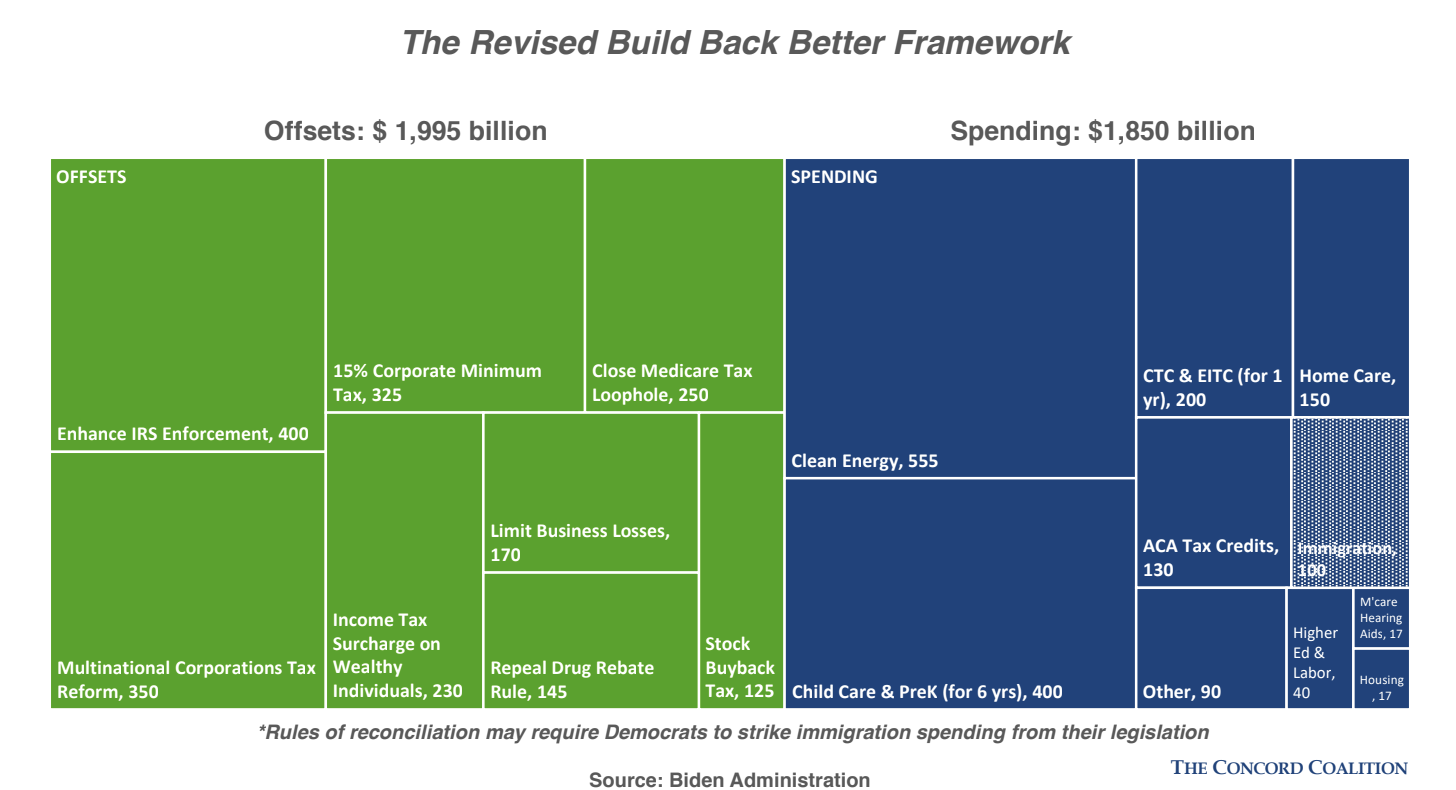The Biden Administration released this week a revised Build Back Better framework (BBBF) that reflects the president’s negotiations with Senators Joe Manchin (D-WV), Krysten Sinema (D-AZ), and Bernie Sanders (D-VT). Although significantly scaled back from the initial $3.5 trillion target, the revised $2 trillion BBBF suffers from the same deficiency as previously leaked iterations—namely, budget gimmicks that hide the true cost of the proposed new package.

Among its provisions, the BBBF proposes popular investments in family support and health care: $400 billion for universal pre-kindergarten and child care, $200 billion to extend the 2021 expansion of the Child Tax Credit (CTC) and Earned Income Tax Credit (EITC), and $130 billion to make health insurance more affordable for those without coverage. But the BBBF, as currently structured, would make none of these new programs permanent. Instead, the framework provides funding for only 6 years of universal pre-K and child care, 3 years of expanded health care insurance premium tax credits, and a one-year extension of the enhanced CTC and EITC.
Future lawmakers will be under enormous public pressure to make these temporary programs permanent, which would add at least another $1.5 trillion to the cost. As drafted, however, the BBBF would only offset $2 trillion (and this assumes those offsets hold up to scrutiny by the Congressional Budget Office (CBO) and Joint Committee on Taxation). Given the Democrats’ struggle to unify behind a common set of payfors, this strongly suggests that any extension of the BBBF temporary programs in the future will simply add to the federal debt.
The BBBF would also expand Medicare to include a $35 billion audiology benefit—a stunning fiscal incongruity on the heels of a just-released Trustees’ report that details Medicare’s substantial financial shortfall and implores lawmakers to take corrective action “sooner rather than later to minimize the impact on beneficiaries, providers, and taxpayers.” Adding additional benefits to Medicare without a dedicated revenue source or concomitant reduction in Medicare spending elsewhere will only hasten the need for painful benefit cuts that lawmakers seek to avoid. Will Medicare beneficiaries appreciate the irony?
Keep in mind that the backdrop for this policy debate is a federal budget on an unsustainable path. Even before the COVID pandemic hit, non-partisan agencies like CBO (Congress’ scorekeeper) and the U.S. Government Accountability Office (the federal government’s accountant) warned lawmakers of the sustained and widening gap between revenues and spending. In FY 2019, the last “normal” budget year before COVID, the CBO projected the return of perpetual annual budget deficits in excess of $1 trillion as early as FY 2022. Debt held by the public was projected to exceed 100 percent of GDP by 2034 and keep growing. When the budgetary effects of COVID eventually fade, the underlying structural imbalance will remain…and grow.
Adding a new phalanx of underfunded social spending programs to the federal budget, especially ones masquerading as “temporary,” is wholly irresponsible. Luckily, there is time for Democrats to change course. As the BBBF is translated from talking points into legislative text, the president and his Democratic colleagues should demonstrate their commitment to their Build Back Better agenda—and to the future generations in which they are investing—by fully funding a permanent BBBF or scaling back the scope to fit available revenue… without the gimmicks.




